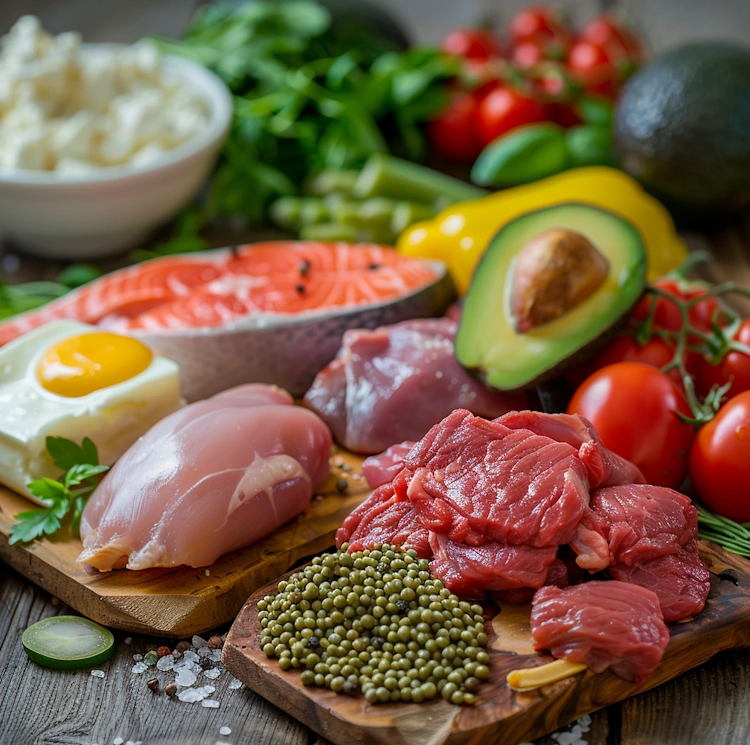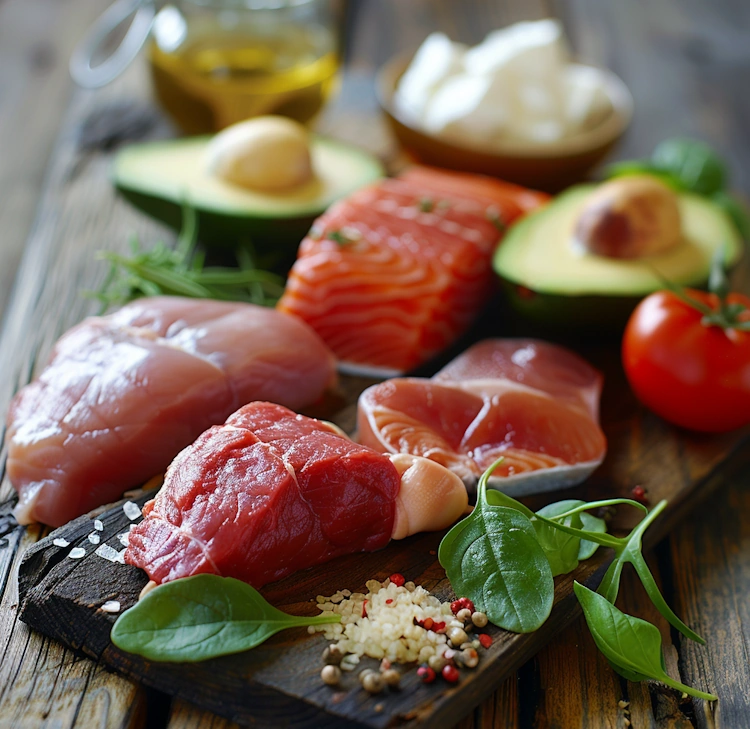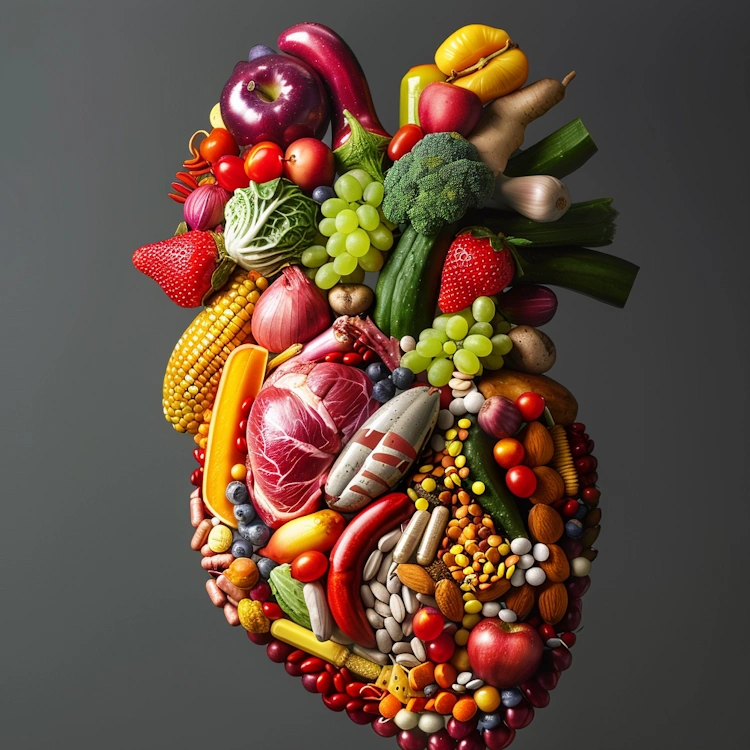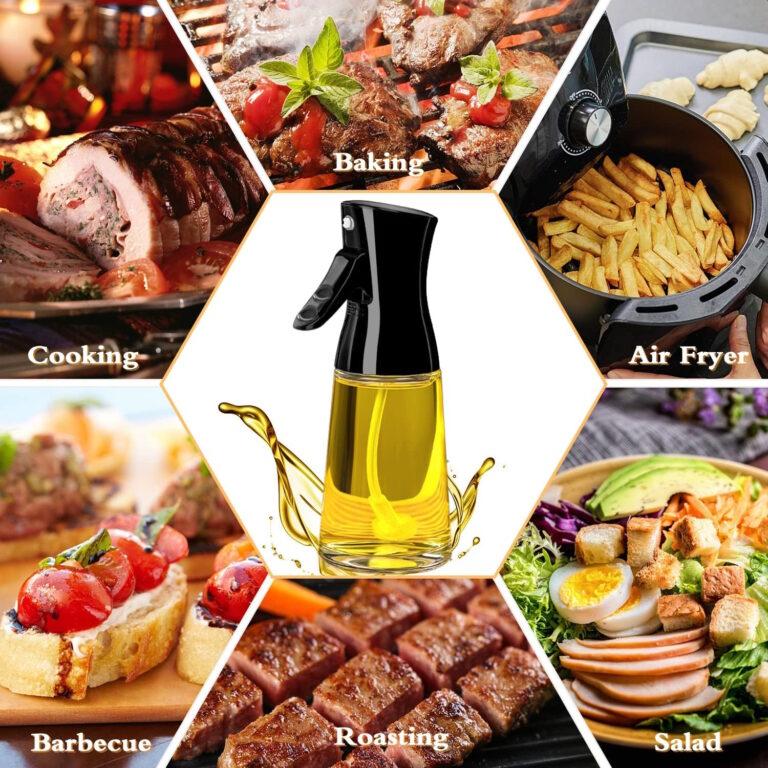Top Foods High in Carnitine: How to Boost Your Energy and Health with L-Carnitine-Rich Foods

Discover the Top Foods High in Carnitine: Boost Your Energy Now!
Are you constantly searching for ways to boost your energy levels and enhance your overall health? You may have heard of a nutrient called carnitine. This powerful compound plays a crucial role in turning fat into energy, making it essential for anyone looking to improve their fitness and well-being.
Did you know that beef is one of the top sources of L-Carnitine, offering 81 mg in just a 3 oz serving? In this article, we’ll dive into the world of foods high in carnitine, exploring how they can benefit your health and where to find them.
From meat lovers to dairy enthusiasts, there’s something for everyone. Get ready to fuel your body with the right nutrients! Keep reading to unlock the secrets of carnitine-rich diets.
Key Takeaways
- Beef steak and ground beef are great sources of carnitine, with a 4-ounce serving of beef steak offering between 56 mg to 162 mg.
- Whole milk gives you about 8 mg of carnitine in an 8 oz serving, making it a good choice for daily consumption.
- For non-meat eaters, avocado provides a plant-based source of carnitine that can be added to various meals.
- Carnitine is important for turning fat into energy and helps with heart and brain function, muscle movement, and overall health.
- Too much carnitine from supplements can cause side effects like nausea and increase the risk of heart disease.
How L-Carnitine Helps Your Body Turn Fat into Energy
Carnitine is a compound that plays a crucial role in the body’s energy production by transporting fatty acids into the mitochondria. It is important for heart and brain function, muscle movement, and many other aspects of health.
How Much L-carnitine Should You Take Daily?
Experts have not set a strict recommended daily intake for L-carnitine because most people produce enough of it naturally. However, some suggest that adults can safely take up to 2,000 mg per day through supplements if needed.
For those looking to increase their carnitine levels through diet, focusing on foods high in L-carnitine could be beneficial. Consuming various carnitine-rich foods like beef steak, which contains between 56 mg to 162 mg per 4-ounce portion, and pork with 24 mg per 3 oz serving can help meet these needs without the need for supplements.
Eating a balanced diet that includes animal products such as red meat, poultry, fish, and dairy is key for maintaining adequate levels of carnitine. For instance, including whole milk in your daily routine provides about 8 mg of L-carnitine per 8 oz., supporting energy production and overall health efficiently.
Those following vegetarian or vegan diets may need to pay extra attention to their carnitine intake since plant-based sources offer much less of this nutrient compared to animal products.
Best Animal and Plant Sources of L-Carnitine

Red meat, such as beef steak, contains an estimated 56 mg to 162 mg of carnitine per 4-ounce portion.
To meet the body’s carnitine needs, it is essential to understand its dietary sources. Red meat, such as beef steak and pork, are rich in L-carnitine; 3 oz servings of beef steak provide approximately 81 mg, while the same serving size of pork offers around 24 mg.
Additionally, whole milk contains about 8 mg per 8 oz serving, and cod fish provides approximately 5 mg per 3 oz serving. While animal products like cheddar cheese also contain carnitine but in relatively smaller amounts compared to red meat.
Conversely, vegetables, fruits, and grains offer negligible levels of carnitine compared to animal-derived sources.
Beef steak and pork are significant contributors to daily carnitine intake with generous servings providing substantial amounts. Whole milk and cod fish too contribute moderately to meeting the body’s L-carnitine requirements.
Who is at Risk of L-Carnitine Deficiency and How to Prevent It?
Carnitine deficiency can lead to fatigue, muscle weakness, and potential heart complications. It is especially risky for vegetarians and individuals with certain genetic conditions that impair carnitine synthesis.
Those at risk include premature infants as they have low levels of carnitine. Additionally, individuals undergoing kidney dialysis may be prone to deficiency due to decreased production and increased excretion of carnitine in the urine.
Recognizing these risk groups is crucial for ensuring adequate intake.
How L-Carnitine Can Improve Your Health and Performance
Carnitine may have potential benefits for Alzheimer’s disease, cardiovascular health, insulin resistance, infertility, osteoarthritis, athletic performance, and weight loss. However, excessive intake of carnitine can pose health risks and may interact with certain medications.
Effects on Alzheimer’s disease, cardiovascular disease, insulin resistance, infertility, osteoarthritis, athletic performance, and weight loss
L-carnitine has been linked to potential benefits for various health conditions and physical performance. Here are the effects of L-carnitine:
- Alzheimer’s Disease: Studies suggest that L-carnitine may help improve cognitive function by reducing oxidative stress and inflammation in the brain.
- Cardiovascular Disease: L-carnitine may aid in lowering blood pressure, improving lipid profiles, and decreasing symptoms of angina.
- Insulin Resistance: Supplementing with L-carnitine could enhance insulin sensitivity, potentially benefiting individuals with diabetes or metabolic syndrome.
- Infertility: L-carnitine has shown promise in improving sperm quality and motility, potentially aiding in male fertility.
- Osteoarthritis: Research indicates that L-carnitine supplementation might alleviate pain and improve physical function in individuals with osteoarthritis.
- Athletic Performance: L-carnitine may enhance exercise performance by increasing fat utilization for energy and reducing lactic acid accumulation.
- Weight Loss: Some evidence suggests that L-carnitine could aid in weight management by promoting fat utilization and energy expenditure.
Health risks from excessive intake

L-carnitine is primarily found in animal products, with red meat having the highest levels.
Excess intake of L-carnitine can lead to adverse health effects. Overconsumption of L-carnitine supplements may cause nausea, vomiting, abdominal cramps, and diarrhea. High doses can also increase the risk of cardiovascular disease and inflammation.
An excessively high level of L-carnitine in the body may interfere with thyroid function and contribute to increased production of trimethylamine N-oxide (TMAO), a compound associated with heart disease.
It’s important to be mindful of the recommended daily intake and consult a healthcare professional before taking L-carnitine supplements in large quantities.
Interactions with medication
Excessive intake of L-carnitine can lead to potential health risks, especially when combined with certain medications. It is important to note that L-carnitine may interfere with blood thinners such as warfarin and anti-seizure medications like valproic acid.
Additionally, it’s essential to consult a healthcare professional before using L-Carnitine supplements if you are taking thyroid hormone medication or have kidney disease.
Moreover, for individuals on chemotherapy treatment, it’s crucial to seek medical advice before incorporating L-carnitine into their diet or taking supplements due to the potential impact on treatment effectiveness.
Top Foods High in Carnitine
How to Incorporate L-Carnitine-Rich Foods into Your Diet
Beef steak, ground beef, pork meat, whole milk, cod fish, chicken breast, and avocado are among the top foods high in carnitine that you can easily incorporate into your healthy diet.
Learn more about how these foods can benefit your health!
Beef steak, ground beef, pork meat, whole milk, cod fish, chicken breast, avocado
Beef steak contains 56-162 mg of L-carnitine per 4-ounce portion. Ground beef is also high in L-carnitine, providing around 81 mg per 3 oz serving. Pork meat offers a significant amount of L-carnitine, delivering approximately 24 mg per 3 oz serving. Whole milk contains about 8 mg of L-carnitine per 8 oz, while cod fish is another good source, with around 5 mg per 3 oz serving. Chicken breast also provides a notable amount of L-carnitine. Additionally, avocados can be included as a source of L-carnitine in a balanced diet.
How to incorporate them into a healthy diet

The best sources of L-Carnitine include beef, pork, milk, cod fish, chicken breast, cheddar cheese, whole wheat bread, and asparagus.
Incorporating L-carnitine-rich foods into your diet is essential for reaping their benefits. Here’s how you can do it:
- Include a serving of beef steak or ground beef in your meals at least twice a week to meet your L-carnitine intake requirements.
- Opt for pork meat as a substitute for red meat to add variety to your diet and increase L-carnitine consumption.
- Drink a glass of whole milk daily as part of your breakfast or snack to benefit from its L-carnitine content.
- Enjoy cod fish as a main dish several times a month to introduce a good source of L-carnitine into your diet and boost heart health.
- Incorporate chicken breast into your weekly meal plans as a lean protein source rich in L-carnitine, promoting muscle function and energy production.
- Add avocado to salads, smoothies, or sandwiches for a healthy dose of L-carnitine and monounsaturated fats.
Boost Your Lifestyle Game With L-Carnitine: Say Hello To Boundless Energy (wherecanibuythat.us)
Conclusion: Boost Your Energy and Health with L-Carnitine-Rich Foods
Explore these top foods high in carnitine to enhance your daily intake of this essential nutrient. From beef steak to codfish, there are plenty of delicious options that can easily be incorporated into your meals.
Whether you’re aiming for improved athletic performance or looking to support heart and brain health, adding these carnitine-rich sources to your diet can help you achieve your nutritional goals.
So go ahead and enjoy a variety of L-carnitine-packed foods for overall well-being and vitality!
FAQs
1. What foods have a lot of carnitine?
Foods high in carnitine include red meat, poultry, fish, and dairy foods. Some vegetables and avocados also have carnitine.
2. Why is carnitine important for our body?
Carnitine helps our bodies turn fat into energy. It plays a key role in metabolism, transporting fatty acids to where they can be burned for fuel.
3. Can not having enough carnitine cause problems?
Yes, not getting enough carnitine can lead to fatigue, muscle weakness, and other side effects because your body struggles to convert fat into energy properly.
4. How much L-carnitine should I take every day?
The right dosage of L-carnitine depends on individual needs and health goals like weight loss or improved exercise performance. Always talk to a doctor before starting supplements.
5. Besides eating the right foods, can I take supplements for more carnitine?
Yes! Carnitine supplements are available if you need more than what food provides or have unique health requirements that make getting extra necessary. Acetyl L-Carnitine 1,500 mg High Potency Supports Natural Energy Production (Amazon)
https://ods.od.nih.gov/factsheets/Carnitine-HealthProfessional/
https://www.livestrong.com/article/22647-foods-containing-l-carnitine/
https://longevity.technology/lifestyle/10-best-foods-rich-in-l-carnitine/
https://www.doctorkiltz.com/carnitine-foods/
https://www.medicinenet.com/what_foods_are_high_in_carnitine/article.htm



















